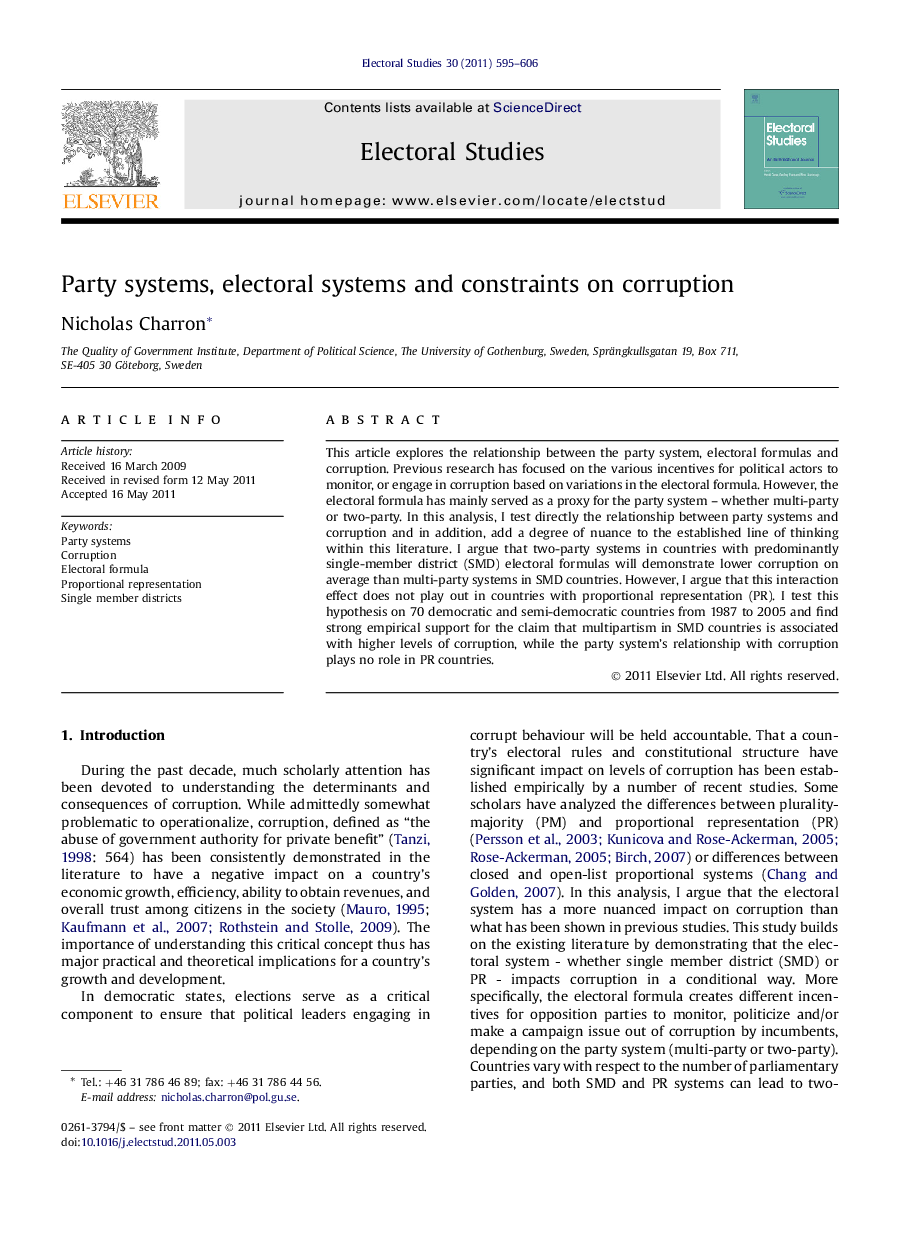| کد مقاله | کد نشریه | سال انتشار | مقاله انگلیسی | نسخه تمام متن |
|---|---|---|---|---|
| 1052258 | 1484961 | 2011 | 12 صفحه PDF | دانلود رایگان |

This article explores the relationship between the party system, electoral formulas and corruption. Previous research has focused on the various incentives for political actors to monitor, or engage in corruption based on variations in the electoral formula. However, the electoral formula has mainly served as a proxy for the party system – whether multi-party or two-party. In this analysis, I test directly the relationship between party systems and corruption and in addition, add a degree of nuance to the established line of thinking within this literature. I argue that two-party systems in countries with predominantly single-member district (SMD) electoral formulas will demonstrate lower corruption on average than multi-party systems in SMD countries. However, I argue that this interaction effect does not play out in countries with proportional representation (PR). I test this hypothesis on 70 democratic and semi-democratic countries from 1987 to 2005 and find strong empirical support for the claim that multipartism in SMD countries is associated with higher levels of corruption, while the party system’s relationship with corruption plays no role in PR countries.
► I model the effects of party systems on corruption conditioned by a country’s electoral system.
► I empirically test my hypothesis that multipartism leads to greater corruption in SMD countries yet not in PR countries. SMD states with multi-party systems are found to have greater corruption on average than two-party SMD countries.
► The party system plays no significant role in determining corruption levels in PR countries.
► The impact of party systems on corruption is thus conditioned significantly by a country’s electoral rules.
Journal: Electoral Studies - Volume 30, Issue 4, December 2011, Pages 595–606